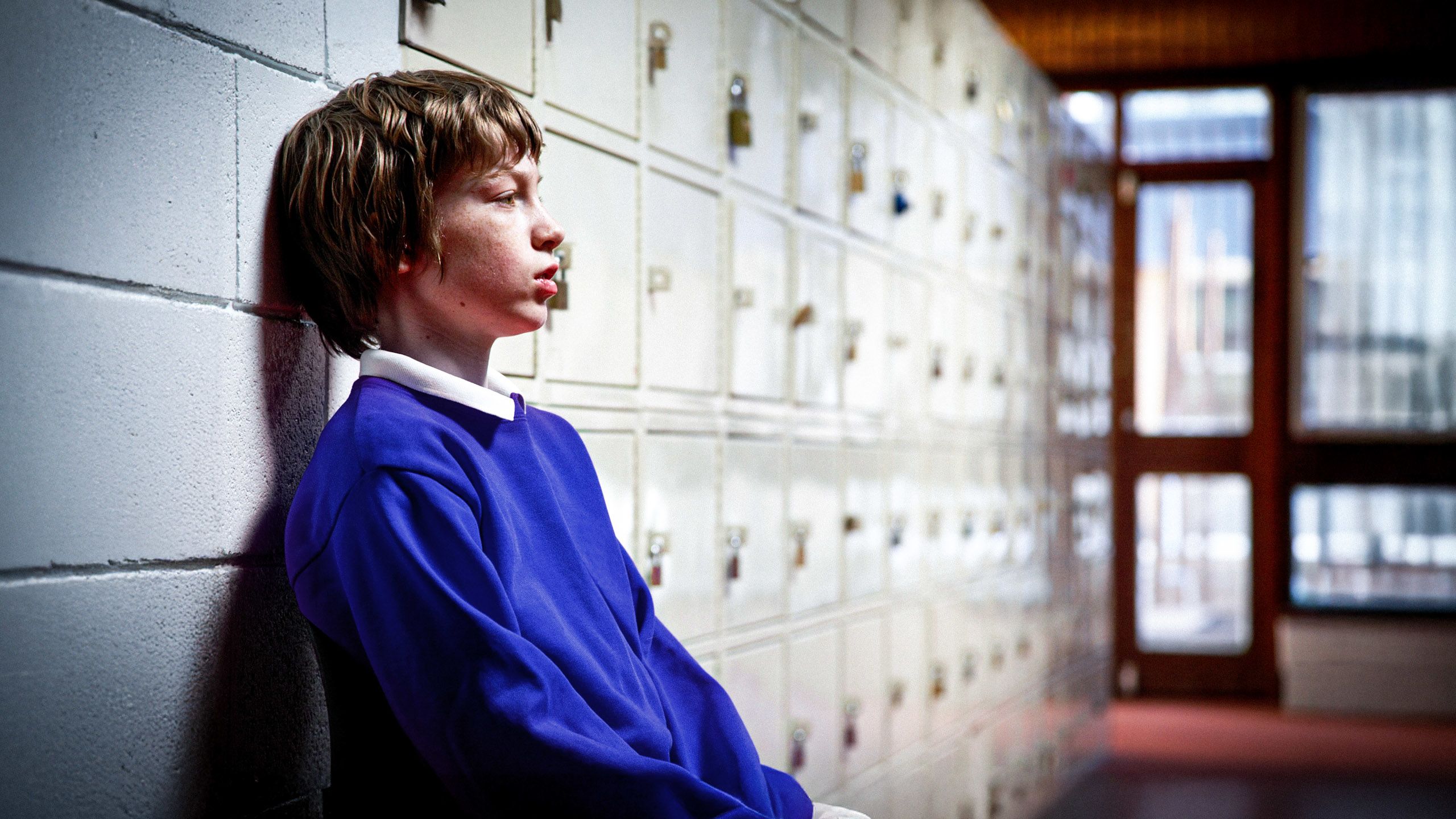Navigating the
emotional toll of
permanent exclusion
in education


In this article, the author – whose identity has been kept anonymous – explores the emotional and professional challenges head teachers face when making the difficult decision to permanently exclude a pupil while highlighting the systemic issues that often lead to this point.
It is the weekend, and I find myself emotionally drained following a permanent exclusion panel meeting.
I can’t eat, I want to be alone, and I’ve spent most of Saturday on the brink of tears. I can’t stop thinking about the permanent exclusion decision I made, which has been upheld. My name will forever be etched in a young child’s mind as the head teacher who removed them from their school. I know this decision will have a detrimental effect on their young life. Am I the worst head teacher ever? If you’re an educator, you may have faced similar emotional turmoil when dealing with permanent exclusions.
As a head teacher, few decisions carry as much weight or emotional turmoil as the permanent exclusion of a pupil.
While this step is often a last resort, the journey to that point is laden with intense emotional and professional challenges for head teachers. Balancing the rational understanding that exclusion is sometimes necessary with the emotional struggle of knowing the profound impact on a young person’s life is a delicate act that tests the resolve of even the most experienced head teachers.
Permanent exclusion is emotionally draining for all parties involved.
Educators invest significant time and effort into nurturing each pupil, often forming deep emotional connections. When a pupil’s behaviour escalates to the point where exclusion is considered, educators are left grappling with feelings of failure, guilt and sadness. These emotions are compounded by the knowledge that exclusion can be a pivotal moment in a pupil’s life, potentially leading to negative long-term consequences.
Following the guidelines for exclusion is crucial.
The decision is never taken lightly and involves rigorous adherence to policies and procedures to ensure fairness and legality. All staff in a school meticulously document incidents, provide support and interventions and involve parents and external agencies in attempts to resolve the issues. Despite these efforts, there are instances where exclusion becomes the only viable option to maintain a safe and conducive learning environment for other pupils and staff.
Rationally, head teachers understand that the decision is often the right one.
It serves to protect the learning environment and uphold standards of behaviour, and sometimes, it is necessary for the well-being of the excluded pupil. However, this rational understanding does little to soothe the emotional distress that accompanies the decision.
The emotional brain struggles with the reality of exclusion.
Head teachers are inherently compassionate and dedicated to the growth and well-being of their pupils. The emotional conflict arises from the clash between this compassion and the necessity to uphold school policies. Head teachers often question themselves, wondering if there was something more they could have done or if another approach might have yielded different results.





It is the weekend, and I find myself emotionally drained following a permanent exclusion panel meeting.
I can’t eat, I want to be alone, and I’ve spent most of Saturday on the brink of tears. I can’t stop thinking about the permanent exclusion decision I made, which has been upheld. My name will forever be etched in a young child’s mind as the head teacher who removed them from their school. I know this decision will have a detrimental effect on their young life. Am I the worst head teacher ever? If you’re an educator, you may have faced similar emotional turmoil when dealing with permanent exclusions.
As a head teacher, few decisions carry as much weight or emotional turmoil as the permanent exclusion of a pupil.
While this step is often a last resort, the journey to that point is laden with intense emotional and professional challenges for head teachers. Balancing the rational understanding that exclusion is sometimes necessary with the emotional struggle of knowing the profound impact on a young person’s life is a delicate act that tests the resolve of even the most experienced head teachers.
Permanent exclusion is emotionally draining for all parties involved.
Educators invest significant time and effort into nurturing each pupil, often forming deep emotional connections. When a pupil’s behaviour escalates to the point where exclusion is considered, educators are left grappling with feelings of failure, guilt and sadness. These emotions are compounded by the knowledge that exclusion can be a pivotal moment in a pupil’s life, potentially leading to negative long-term consequences.
Following the guidelines for exclusion is crucial.
The decision is never taken lightly and involves rigorous adherence to policies and procedures to ensure fairness and legality. All staff in a school meticulously document incidents, provide support and interventions and involve parents and external agencies in attempts to resolve the issues. Despite these efforts, there are instances where exclusion becomes the only viable option to maintain a safe and conducive learning environment for other pupils and staff.
Rationally, head teachers understand that the decision is often the right one.
It serves to protect the learning environment and uphold standards of behaviour, and sometimes, it is necessary for the well-being of the excluded pupil. However, this rational understanding does little to soothe the emotional distress that accompanies the decision.
The emotional brain struggles with the reality of exclusion.
Head teachers are inherently compassionate and dedicated to the growth and well-being of their pupils. The emotional conflict arises from the clash between this compassion and the necessity to uphold school policies. Head teachers often question themselves, wondering if there was something more they could have done or if another approach might have yielded different results.
The strain on special educational needs and disabilities (SEND) services further complicates the issue.
SEND services are at breaking point, overwhelmed by the sheer volume of cases and the complexity of needs. Mainstream schools, despite their best efforts, frequently find themselves ill-equipped to provide the intensive, specialised support that some pupils require. This gap in the system leaves vulnerable pupils at a disadvantage, often exacerbating their behavioural issues and making exclusion more likely.
The current system, in many ways, is failing to support pupils, teachers and head teachers adequately.
The increasing pressures on SEND services, coupled with insufficient resources in mainstream schools, create an environment where permanent exclusion becomes a more frequent outcome. School funding is at crisis point, leaving many without the means to provide necessary interventions and support. This systemic failure highlights the urgent need for reform, including increased funding for SEND services, better training for teachers in managing complex needs and more robust support systems within schools.

The strain on special educational needs and disabilities (SEND) services further complicates the issue.
SEND services are at breaking point, overwhelmed by the sheer volume of cases and the complexity of needs. Mainstream schools, despite their best efforts, frequently find themselves ill-equipped to provide the intensive, specialised support that some pupils require. This gap in the system leaves vulnerable pupils at a disadvantage, often exacerbating their behavioural issues and making exclusion more likely.
The current system, in many ways, is failing to support pupils, teachers and head teachers adequately.
The increasing pressures on SEND services, coupled with insufficient resources in mainstream schools, create an environment where permanent exclusion becomes a more frequent outcome. School funding is at crisis point, leaving many without the means to provide necessary interventions and support. This systemic failure highlights the urgent need for reform, including increased funding for SEND services, better training for teachers in managing complex needs and more robust support systems within schools.

The fate of the excluded child is often bleak.
They are stuck waiting for specialist provision, receiving only minimal tutoring and often less than full-time education, leaving them educationally disadvantaged. The wait for alternative provision is long and fraught with uncertainty, exacerbating the negative impact on the child’s academic and personal development. This interim period highlights the systemic inadequacies that fail to provide timely and adequate support for the most vulnerable students.

The fate of the excluded child is often bleak.
They are stuck waiting for specialist provision, receiving only minimal tutoring and often less than full-time education, leaving them educationally disadvantaged. The wait for alternative provision is long and fraught with uncertainty, exacerbating the negative impact on the child’s academic and personal development. This interim period highlights the systemic inadequacies that fail to provide timely and adequate support for the most vulnerable students.
Permanent exclusion is a decision that no head teacher takes lightly.
It is a complex interplay of rational decision-making and emotional struggle, exacerbated by systemic inadequacies. While the rational brain understands the necessity, the emotional brain continues to wrestle with the consequences. For the system to serve all pupils better, particularly those with SEND, significant reforms and increased support are essential – only then can we hope to reduce the need for such drastic measures and ensure that every pupil receives the support and education they deserve.

Permanent exclusion is a decision that no head teacher takes lightly.
It is a complex interplay of rational decision-making and emotional struggle, exacerbated by systemic inadequacies. While the rational brain understands the necessity, the emotional brain continues to wrestle with the consequences. For the system to serve all pupils better, particularly those with SEND, significant reforms and increased support are essential – only then can we hope to reduce the need for such drastic measures and ensure that every pupil receives the support and education they deserve.



